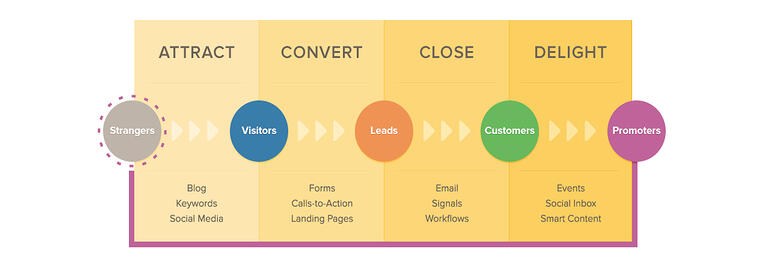More and more businesses are adopting inbound marketing into their online marketing or digital marketing strategy because traditional marketing tactics just aren't working anymore.
In fact, 58% of marketers have already adopted inbound strategies.
Don't worry if you're just coming into the mix. Most likely, you've already implemented some inbound strategies.
Starting a complete inbound plan will take what you're doing and maximize your efforts by making all online venues work together to generate the business you actually want.
This methodology is intentional and effective because it addresses the consumer shift and positions companies to deliver value to the people that matter the most.
What is inbound marketing?
Inbound marketing is founded on a methodology that helps brands attract, convert, close and delight visitors, leads and customers through a variety of channels:
- social media
- blogging
- SEO

Inbound marketing pulls customers to your company (attract) rather than pushing a single message to a mass (mass media or outbound marketing).
It is often compared with outbound tactis or traditional marketing such as cold calling, print advertisements, TV commercials and radio ads. Although these can be of value to certain buyer personas, they are not effective.
Inbound marketing delivers 54% more leads into the marketing funnel than traditional outbound leads. (HubSpot)
Inbound is fundamentally rooted in the principles that people value personalized, relevant content and connections — not interruptive messages — and that marketing can and should be more lovable. (Hampton Roads HUG, 2013)



